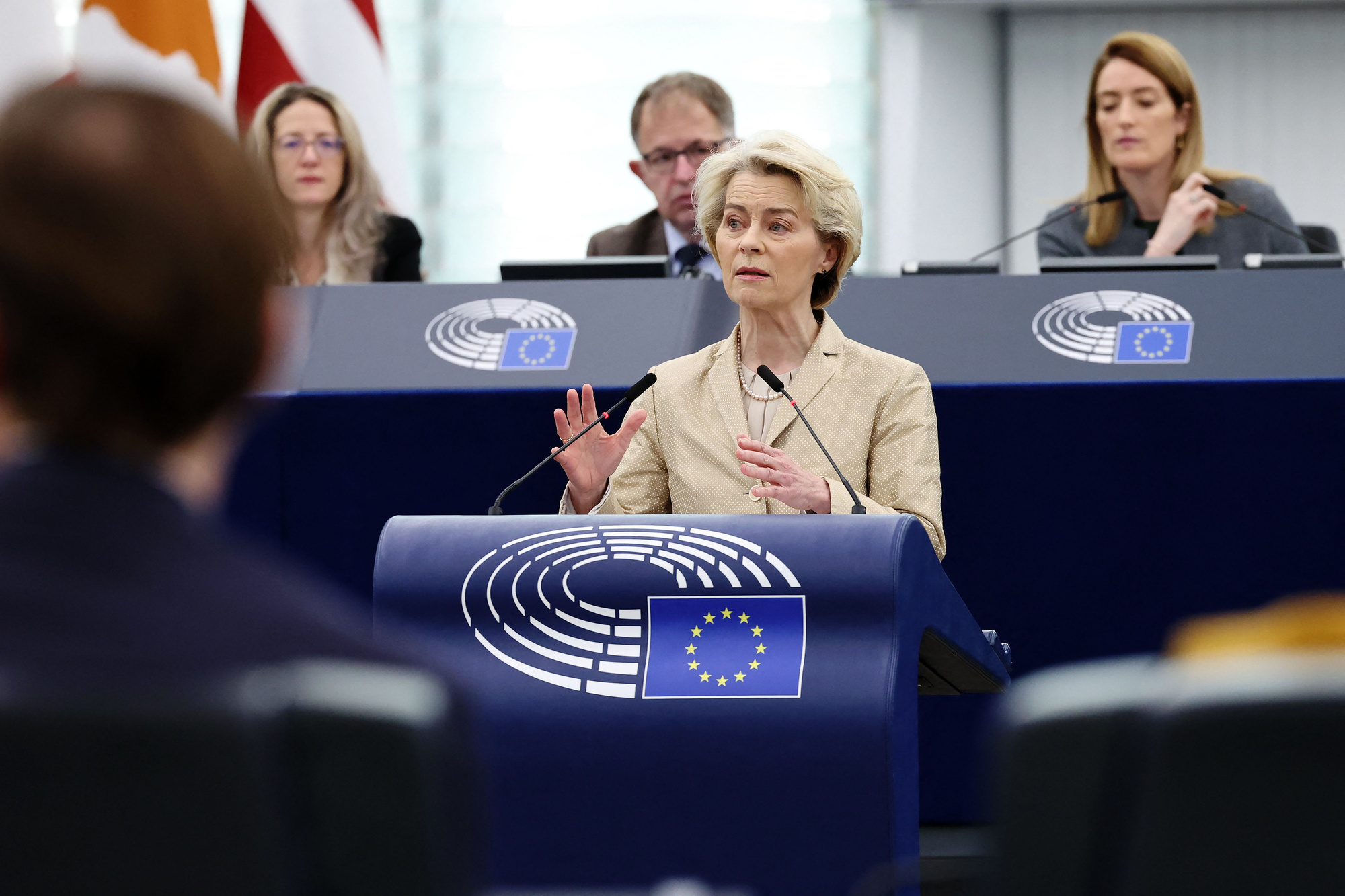A bold European Commission proposal to unlock €140 billion for Ukraine using frozen Russian assets hit major roadblocks this week. Belgium flatly rejected the plan, and several other member states raised concerns about legal risks and financial exposure, Euronews reports.
According to Ukrainian authorities, Ukraine spends $172 million per day on the war against Russia, which amounts to 31% of its GDP on defense. At the same time, Russia spends slightly less than $1 billion per day on the war in Ukraine, said Kyrylo Budanov, head of Ukrainian Defense Intelligence. In an interview with UkrInform, he claimed that 41% of Russia’s budget goes on defense.
Belgian Prime Minister Bart De Wever delivered the sharpest rebuke at the Copenhagen summit on 1 October 2025, warning that the scheme “will never happen” and accusing Germany of “taking Putin’s money and leaving the risks with us,” as per Belga News Agency.
His opposition carries unusual weight: roughly €170 billion of the frozen Russian funds sit in Brussels at Euroclear, the financial depository at the heart of the proposed mechanism, VRT reports.
Belgium’s double bind
De Wever’s concerns are both legal and financial. Belgium fears facing arbitration claims if Russia demands its money back through international courts, and potentially being forced to return the assets, according to Anadolu Agency.
The country also stands to lose a crucial revenue stream: Belgium currently collects €1.3 billion annually in corporate tax from Euroclear’s earnings on the frozen Russian funds, which it spends on aid to Ukraine and defence.
De Wever warned on the sidelines of the UN General Assembly meeting in New York that “If countries see that central bank money can disappear if European politicians see fit, they might decide to withdraw their reserves from the eurozone,” EurActiv reports.
Euroclear itself has urged that risks be “adequately mitigated,” warning that any action must avoid “undermining confidence in international financial markets by safeguarding the legal order and legal certainty which underpin global economies.”
France demands legal safeguards
French President Emmanuel Macron cautiously welcomed the plan at the Copenhagen summit but insisted that “we need to remain a place that’s attractive and reliable, we Europeans,” adding that “when assets are frozen, we respect international law,” according to the Washington Times.
France faces particular constraints. The country is mired in debt and particularly hesitant about providing national guarantees that might worsen its fiscal position. Paris wants assurances that any loan burden would be shared equally across member states.
Hungary and Slovakia loom as spoilers
Brussels designed the loan to circumvent potential vetoes from Hungary and Slovakia, whose Moscow-friendly governments have repeatedly blocked Ukraine support, Radio Free Europe/Radio Liberty writes.
Hungarian Conservative reveals that in Copenhagen, Viktor Orbán forced 26 leaders to issue conclusions without him, while Budapest has already sued the Commission over frozen asset use.
Von der Leyen pushes back
Commission President Ursula von der Leyen has defended the proposal as legally sound and morally necessary.
“This is Russia’s war. And it is Russia that should pay. It should not only be European taxpayers who bear the brunt,” she said when unveiling the concept in mid-September.
At the Copenhagen summit, von der Leyen emphasized the distinction between confiscation and collateralization, adding that the European countries are not “confiscating the assets, but we are taking the cash balances for a loan to Ukraine.”
“Ukraine has to pay back this loan if Russia pays reparations,” she told reporters.
Support from Germany and smaller states
German Chancellor Friedrich Merz has become the plan’s most vocal supporter, arguing it should be used to “secure Ukraine’s military resilience for several years,” as per Bloomberg.
“We must massively raise the costs of Russia’s aggression,” Merz wrote, noting Germany would coordinate with G7 partners to invite other countries with frozen Russian assets to join.
Finland, Sweden, Estonia, and Denmark have all backed the proposal. Finnish and Swedish leaders wrote to EU counterparts that “investing in Ukraine is an investment in European security as a whole,” stressing that Ukraine should only repay once it receives Russian reparations.
The stakes for Ukraine
The deadlock comes as Ukraine faces mounting financial needs. Since Russia’s February 2022 invasion, the EU and member states have provided nearly $186 billion in financial, military, humanitarian, and refugee assistance.
But with US support uncertain under the Trump administration and Russia’s war machine still grinding forward, European officials warn that existing aid won’t suffice. Ukraine’s estimated needs for 2026-2027 total around $153 billion.
EU foreign policy chief Kaja Kallas acknowledged the divisions at the Copenhagen summit while emphasizing progress toward a deal, Al Jazeera reports.
“It’s not supported by everybody yet, so there’s still a lot of work to do. But if we don’t take these [Russian] assets into account, then it is on our taxpayers. That’s for sure,” she told reporters.
Moscow’s fury
The Kremlin has denounced the proposal as “pure theft” and threatened legal action. Spokesperson Dmitry Peskov has warned that anyone misappropriating Russian assets “will be prosecuted in one way or another” and “called to account,” claiming the move would erode confidence in European financial institutions.
Given the legal complexity and political sensitivities, negotiations are expected to stretch for weeks or months. The proposal will likely return to the EU summit in late October, but whether Europe can bridge the gap between ambitious plans and national concerns remains uncertain, leaving Ukraine’s financial future hanging in the balance.




